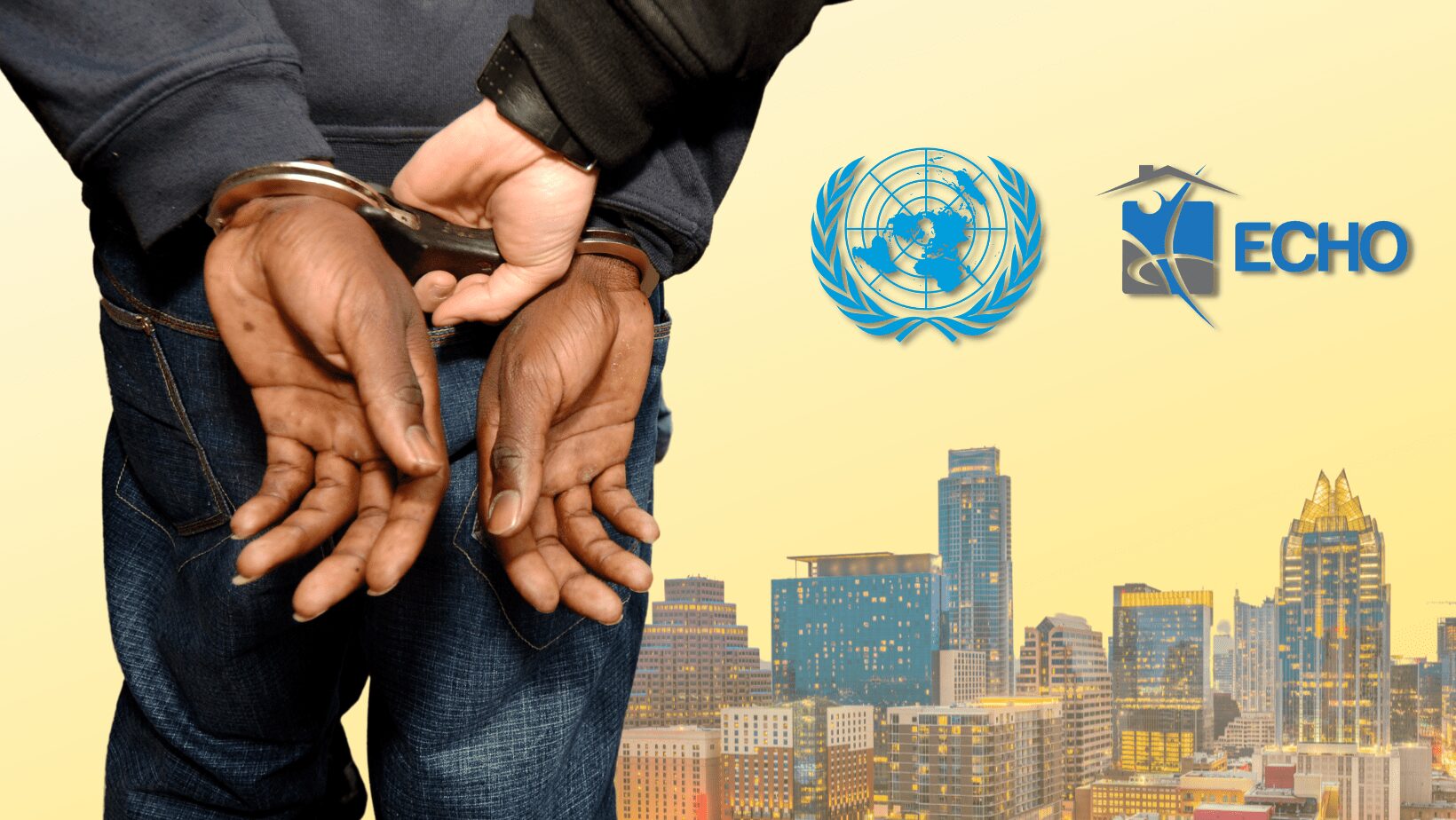Read ECHO’s submission to UN group examining racial injustice, human rights violations by law enforcement
AUSTIN (March 6, 2023) — Laws criminalizing camping and other behaviors associated with homelessness disproportionately harm Black people living in Austin and Travis County, and thus are a violation of international human rights law. That’s the central argument ECHO makes in our submission to a United Nations group examining how Africans and people of African descent are treated by law enforcement around the world.
The submission, which can be found in full here (PDF), is in response to a call for input from the UN Expert Mechanism to Advance Racial Justice and Equality in Law Enforcement. The Mechanism, a group of three experts in human rights law and law enforcement, will travel to the United States in late April to conduct interviews and research. They’ll use submissions like this one to inform their itinerary and create a post-visit report.
ECHO’s submission, written by Research & Evaluation Manager Claire Burrus and Research & Evaluation Director Akram Al-Turk, draws on the invaluable contributions captured in Art of the Heart, a qualitative research project based on the experiences of 34 Black people who’ve been unhoused in our community. Explore the project here.
The authors highlight that camping bans “enshrine laws that value the comfort of people who are housed over the lives of people who are unhoused.”
According to the letter of these laws, everyone living outside faces the same threat of jail time; but the reality, the authors argue, is Black Austinites are impacted more than other racial or ethnic groups.
“Black people are more likely to be targeted by law enforcement in Austin because they are more likely to be unhoused and because people experiencing homelessness are more likely to be involved with law enforcement,” Burrus and Al-Turk write.
A Black Austinite is six times as likely as a white Austinite to experience homelessness due to the effects of systemic racism in housing, healthcare, the criminal legal system, employment, education, and many more areas of public life. People experiencing homelessness made up a third of the Travis County jail population on a single night in January 2023. Compared to the rate of homelessness in Travis County (0.4%), a person without a permanent address is more than 100 times as likely to end up in jail as a person with one.
Because the population of people experiencing homelessness is both disproportionately Black and disproportionately policed, “these laws, while not explicitly racially discriminatory, constitute a form of indirect (i.e., de facto) discrimination against Black people experiencing homelessness,” the authors write, “and, consequently, will further exacerbate racial disparities in housing outcomes in Austin.”
The researchers conclude these facts constitute violations of Articles 2 and 3 of the Universal Declaration of Human Rights.
Read ECHO’s full submission (PDF)
Read the National Homelessness Law Center’s submission (PDF)


